Table of Contents |
guest 2025-12-20 |
2016 Buck Institute Course
Instructor List
Course Schedule
Thanks!!
During the week of March 7-11, 33 participants and 16 instructors delivered the first Bay-area Targeted Proteomics Course at the picturesque Buck Institute for Research on Aging. Drawing from the area's deep biotech community, the course featured an almost even split between industry participants and those from academic institutions.
With a impressive collection of top-flight instructors and an eager group of participants, it made for an intense, collaborative week of discovery and learning on a wide range of targeted proteomic methods and statistical approaches. Initial returns from the post-course survey indicate high marks for both the information delivered as well as the quality of the instructors of the course.
Thanks to everyone who attended or taught a session. Your energy and enthusiasm made this week a great success.
Here are some photos from the week
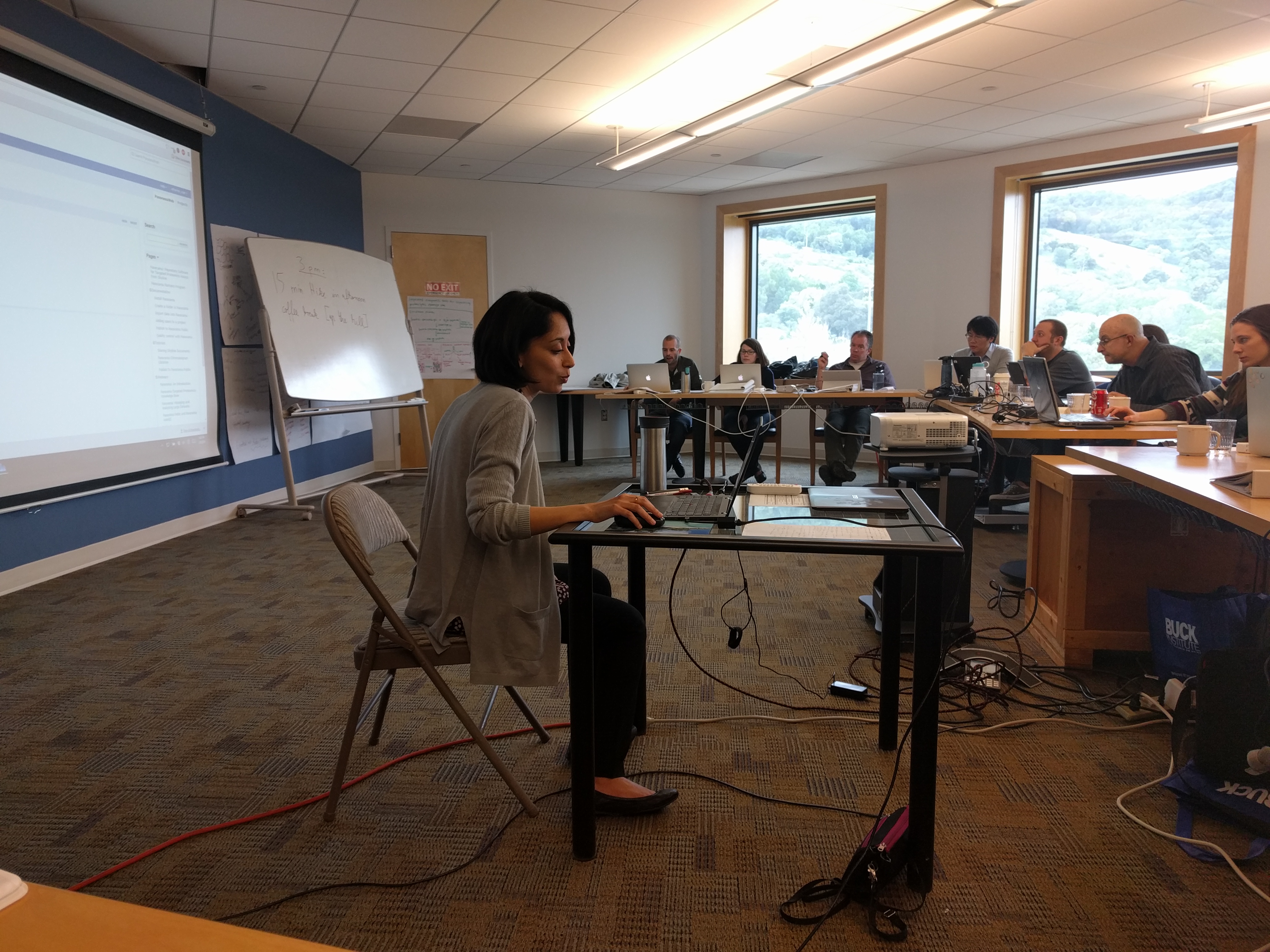 |
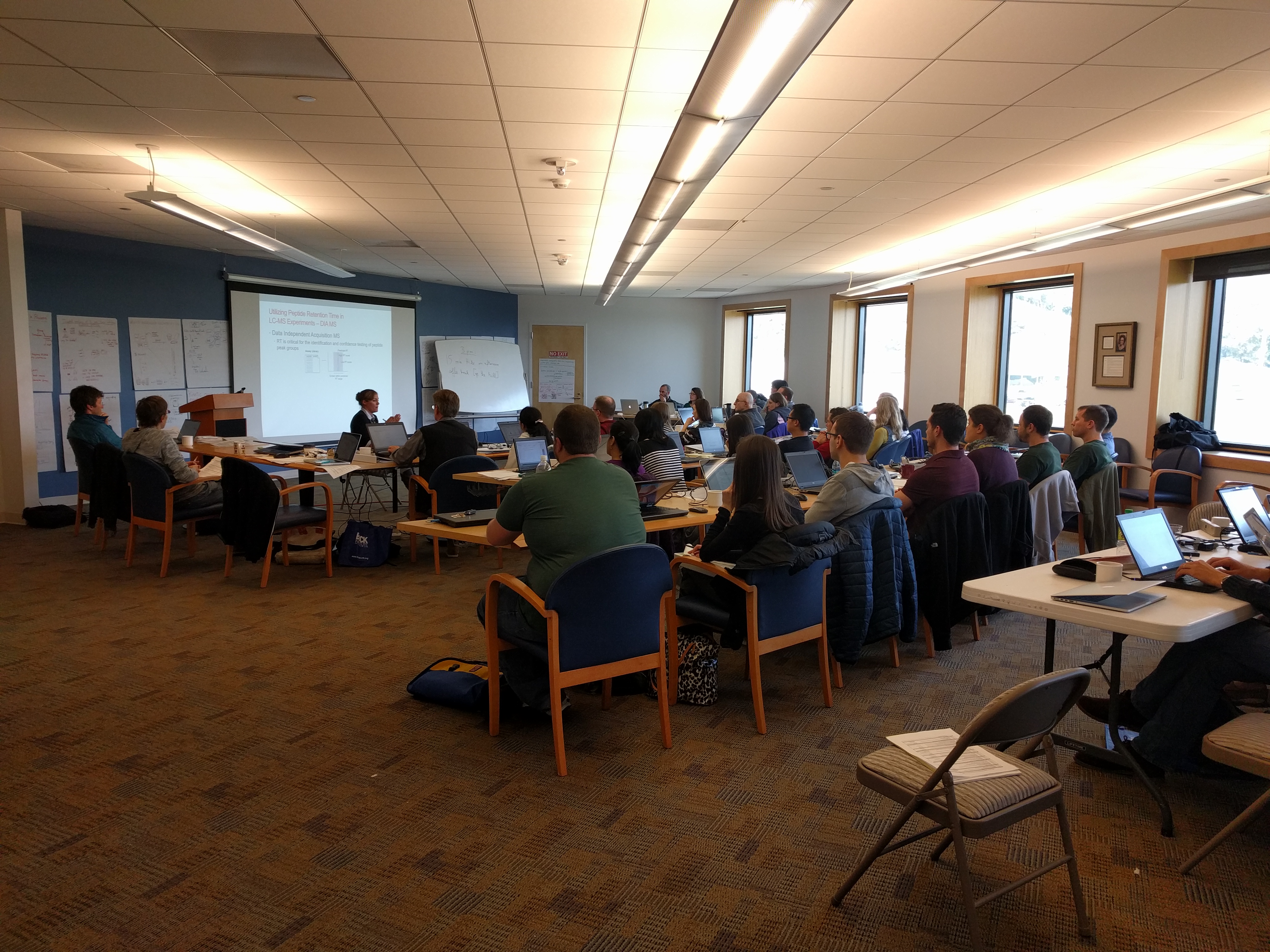 |
2016 Buck Institute Course

Dear Skyline Users:
The Buck Institute and Skyline Team are pleased to co-announce the Buck Institute Targeted Proteomics Course on March 7th - 11th, 2016 in the north San Francisco Bay area, California.
The course schedule will address different emerging quantitative proteomics strategies. This will include the use of Skyline in the context of different quantitative targeted workflows, assay developments, generation of acquisition methods, processing of quantitative data sets, as well as implementation of statistical and R software packages and tools in Skyline. Data examples will cover high trough put SRM assays, MS1 Filtering, but also focus on full scan, high mass accuracy PRM assays and data-independent acquisitions. Data examples will range from analysis of posttranslational modifications, work with human plasma for biomarker analysis and projects involving protein-protein interactions.
The instructor list includes researchers and software developers with a wealth of combined experience in targeted and quantitative proteomics, and both using and creating Skyline to meet the needs of this research approach.
Space is limited. However, all applications submitted by the deadline of December 4 will be considered equally on the merits of the application.
We hope you will join us for this exciting week.
-- Birgit Schilling, Bradford Gibson,
Workshop coordinators
-- Brendan MacLean,
Skyline Project Lead
When: March 7-11, 2016
Where: Buck Institute for Research on Aging is located 30 miles north of San Francisco, in Novato, California. (map) (photo)
Cost: $300 academic, $900 industry
Apply by: Friday, December 4, 2015
Pay by: January 15, 2016
Participants: 30
Room & Board: Not included
[registration closed]
Related Links:
Course Schedule
Instructor List
Instructor List
The following instructors and speakers have agreed to contribute their expertise to the success of Buck Institute Course:
 |
Bradford Gibson, Ph.D. Brad is currently Professor and Director of Chemistry & Mass Spectrometry at the Buck Institute for Research on Aging. After finishing his Ph.D. in protein chemistry and mass spectrometry in Klaus Biemann's group at MIT in 1983, he worked in the lab of Dr. Dudley Williams at Cambridge University as a postdoctoral fellow before joining the faculty at the University of California, San Francisco. At UCSF, his group pioneered studies in the structure and function of bacterial glyconjugates, developed the first protein crosslinking strategy for determining protein tertiary structure, and continued studies to advance protein mass spectrometry. After joining the Buck Institute in 2000, Brad has focused his research interests on advancing and developing discovery, targeted and quantitative technologies in proteomics to study the basic biology of aging and age-related diseases, with a focus on mitochondrial function, biomarker discovery, oxidative damage, and posttranslational modifications. |
|
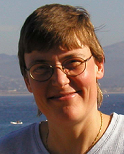 |
Birgit Schilling, Ph.D. Birgit joined the Chemistry Core and Mass Spectrometry Laboratory at the Buck Institute for Research on Aging in Novato, CA in 2000 (director: Dr. Gibson). Research projects include investigations of neurodegenerative diseases, aging, cancer, mitochondrial damage, protein posttranslational modifications including acetylation in bacteria, the role of surface glycoconjugates in bacterial pathogenesis etc., but also mass spectrometric method development. Birgit has worked in the field of protein quantitation to assess differential protein expression or changes in posttranslational modifications, particularly using selected reaction monitoring stable isotope dilution mass spectrometry (SRM-SID-MS), and other chemical and metabolic labeling quantitative workflows, i.e., iTRAQ and SILAC technologies. Birgit has participated in large multi-laboratory SRM verification studies taking advantage of Skyline’s platform independent features. In recent years, she has used more and more label free protein quantitation approaches to investigate discovery mass spectrometric data sets (Skyline MS1 Filtering), as well as newer quantitative workflows, such as high resolution data-independent acquisitions (SWATH and PRM). Birgit has co-developed some algorithms for the Skyline Tool Store and she also extensively uses the interactive data sharing features of the Panorama webserver. |
|
 |
Michael J. MacCoss, Ph.D. Mike became interested in biomedical applications of mass spectrometry while working in Dr. Patrick Griffin’s protein mass spectrometry lab at Merck Research Laboratories. He obtained a Ph.D. with Professor Dwight Matthews and pursued a postdoc with Professor John R. Yates III. In 2004 he started the MacCoss lab at the University of Washington and it became obvious that while mass spectrometry data could be collected quickly and robustly, the lack of computational tools for the visualization and analysis of these data was a stumbling block. In 2009 he recruited Brendan MacLean with the goal of developing professional quality software tools for quantitative proteomics. Mike has worked closely with the Skyline development team and our outstanding group of laboratory scientists and collaborators to ensure that our software uses analytical approaches that have been thoroughly vetted by the mass spectrometry community. |
|
 |
Brendan MacLean Brendan worked at Microsoft for 8 years in the 1990s where he was a lead developer and development manager for the Visual C++/Developer Studio Project. Since leaving Microsoft, Brendan has been the Vice President of Engineering for Westside Corporation, Director of Engineering for BEA Systems, Inc., Sr. Software Engineer at the Fred Hutchinson Cancer Research Center, and a founding partner of LakKey Software. In this last position he was one of the key programmers responsible for the Computational Proteomics Analysis System (CPAS), made significant contributions to the development of X!Tandem and the Trans Proteomic Pipeline, and created the LabKey Enterprise Pipeline. Since August, 2008 he has worked as a Sr. Software Engineer within the MacCoss lab and been responsible for all aspects of design, development and support in creating the Skyline Targeted Proteomics Environment and its growing worldwide user community. |
|
 |
Veronica Anania, Ph.D. Veronica received a PhD in Molecular and Cell Biology from UC Berkeley and currently works as a scientist in biomarker development at Genentech. Her research is focused on implementing targeted and discovery proteomic approaches to develop multiplexed biomarker panels to monitor changes in autoimmune disorders. Additionally, she is developing a targeted method to quantify changes in bioactive lipids from a variety of biological matrices to support respiratory and infectious disease programs. |
|
 |
Meena Choi, M.S. Meena is a PhD student in the Department of Statistics at Purdue University, in the group of Olga Vitek. Meena's research is in development of statistical methods for quantitative proteomics, and for discovery of protein biomarkers of disease. Meena is the main developer and maintainer of the open-source software package MSstats for statistical analysis of quantitative proteomic experiments. Since 2012 Meena established a collaboration with Brendan MacLean and the MacCoss lab, with the goal of making MSstats available as an external tool in Skyline. |
|
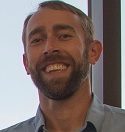 |
Josh Eckels Josh has lead development on proteomics related projects for LabKey Server over the past 10+ years, and he currently oversees Panorama development. He is experienced in security-related projects, client-side end user applications, and server-side development. Prior to joining LabKey, Josh worked most recently on Amazon.com's data warehouse, developing the software that schedules and executes loading and querying of more than 30 terabytes of data. Before that, he was the team lead for the debugger for BEA System's WebLogic Workshop. At LabKey, he focuses on mass spectrometry, other assay types, experimental annotations and general infrastructure. Josh has a BS in Computer Engineering from Northwestern University. |
|
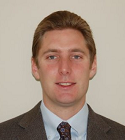 |
Jarrett Egertson, Ph.D. Jarrett is a postdoctoral researcher at the University of Washington Department of Genome Sciences. He works in the MacCoss Lab and primarily focuses on developing new data acquisition methods and software in support of these methods. Jarrett earned his undergraduate degree (B.S. in Molecular, Cell, and Developmental Biology) from UCLA in 2008. While earning his undergraduate degree, Jarrett researched at the Spielberg Family Center for Applied Proteomics at the Cedars-Sinai Medical Center. |
|
 |
Ruth Huttenhain, Ph.D. Ruth Huttenhain did her PhD with Prof. Ruedi Aebersold at the Institute of Molecular Systems Biology, ETH Zurich, where she has been developing targeted mass spectrometric approaches and applied them to the verification of plasma-based biomarkers for ovarian cancer. In 2013 Ruth joined the lab of Prof. Nevan Krogan at University of California San Francisco as a Postdoctoral Scholar. Ruth's current research focuses on investigating dynamics of protein-protein interactions in the context of HIV infection and GPCR signaling. Therefore, she uses a combination of affinity purification and proximity biotinylation approaches coupled to quantitative mass spectrometry. |
|
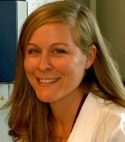 |
Sarah Parker, Ph.D. Sarah is currently a Project Scientist at the Cedars Sinai Medical Center Heart Institute in Los Angeles, California. After completing her PhD in Physiology at the Medical College of Wisconsin she began a post-doctoral fellowship at the Johns Hopkins University to study the molecular basis of aortic aneurysm disease in Marfan Syndrome under the mentorship of Dr. Jennifer Van Eyk and Dr. Hal Dietz. In 2013 Sarah travelled to Zurich, Switzerland on a European Molecular Biology Organization short-term fellowship to learn the method for targeted analysis of Data Independent Acquisition Mass Spectrometry established by Dr. Ruedi Aebersold and his team at ETH. While there Sarah worked on a project to identify a set of highly evolutionarily conserved peptide sequences that have been proven very useful for the alignment of peptide library retention times to iRT-space and the prediction of peptide retention time in DIA-MS files. Sarah is currently working alongside her colleagues in the Van Eyk lab at Cedars to test and refine technical aspects of label-free protein quantification in DIA-MS, with a focus on developing standard operating procedures amenable to the study of very large scale clinical datasets. For her own work, Sarah is using proteome-profiling in vascular samples of various molecular complexity (aortic tissue, cultured smooth muscle cells, and affinity-purified interactomes) in an effort to define the molecular basis of thoracic aortic aneurysm and identify novel therapeutic targets for the disease. |
|
 |
Hannes Röst, Ph.D. Hannes studied Biochemistry and Computational Biology at ETH Zurich (Switzerland). After completing his Masters in Computational Biology in August 2010, Hannes joined the lab of Ruedi Abersold at the Institute of Molecular Systems Biology, ETH Zurich. During his PhD, Hannes has been applying computational and statistical methods to investigate targeted proteomics strategies and their application to produce highly consistent and reproducible protein measurements across many samples. He has contributed to multiple software projects aimed at improving the theoretical understanding of targeted proteomics through simulation, provided high-throughput analysis pipelines for proteome-wide targeted proteomics experiments and developed alignment algorithms for targeted proteomics data. His current research aims to use mass spectrometric methods to perform personalized, longitudinal studies on human subjects, which he pursues as a postdoctoral scholar in the lab of Mike Snyder at Stanford University. | |
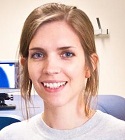 |
Olga Schubert, Ph.D. Olga did her Ph.D. in the group of Prof. Ruedi Aebersold at ETH Zurich (Switzerland). There, she developed experimental resources and computational strategies required to comprehensively and accurately quantify all expressed proteins of the human pathogen Mycobacterium tuberculosis using targeted proteomics. Olga established a strategy to build comprehensive, high-quality assay libraries for SRM/MRM and SWATH MS. She also developed an approach to estimate absolute protein concentrations for entire proteomes based on SWATH MS data. Her work has been awarded the SwissTB Award and the first prize at the Early Career Researcher Competition of the Human Proteomics Organization. Currently, Olga is a postdoctoral fellow at UCLA where she investigates the genetic influences on protein abundance in yeast and human cells. |
|
 |
Vagisha Sharma Vagisha got involved with proteomics at UC San Diego where she worked with Prof. Vineet Bafna. During that time she built her first tools for visualizing Mass Spectrometry data while working at ActivX Biosciences. Since moving to Seattle Vagisha has worked on Mass Spectrometry pipelines for the Aebersold group at the Institute for Systems Biology, and developed a data management system while at the University of Washington Proteomics Resource and the Yeast Resource Center. She joined the Skyline team in October 2011 where she has been the lead developer for the Panorama Targeted Proteomics Knowledge Base. |
|
 |
Tsung-Heng Tsai Tsung-Heng is a postdoctoral research associate in the lab of Olga Vitek at Northeastern University. He is a co-developer of MSstats, an open-source software package for statistical analysis of quantitative proteomic experiments. Tsung-Heng holds a PhD in Electrical Engineering from Virginia Tech. His current research focuses on developing statistical and computational methods for mass spectrometry-based proteomics. |
|
![[Need photo]](/labkey/_webdav/home/software/Skyline/events/2016%20Buck%20Institute%20Course/%40files/Verschueren.jpg) |
Erik Verschueren, Ph.D. Erik currently works in the Discovery Proteomics group at Genentech as a Bioinformatics Scientist. He previously worked at the CRG in Barcelona, Spain and the Krogan lab at University of California San Francisco. Erik’s research focuses on protein interaction networks and post-translational regulation patterns. He also develops computational methods in R for the analysis of high-throughput Affinity Purification Mass Spectrometry datasets, quantitation of differential post-translational modifications and integration of multiple ‘omics datasets into network models. |
|
 |
Olga Vitek, Ph.D. Olga is a Sy and Laurie Sternberg Associate Professor in the College of Science and the College of Computer and Information Science at Northeastern University. Olga holds a PhD in Statistics from Purdue University. Her group develops statistical methods and algorithms for quantitative proteomics. The methods optimize the experimental design, and ensure accurate and objective interpretation of the resulting large and complex datasets. The tools developed by her group include MSstats, an open-source software for statistical analysis of quantitative shotgun, targeted and data-independent proteomic experiments. |
Course Schedule
Monday: Introduction to targeted quantitative proteomics and Skyline
- Meet at Buck Institute at 9am
- Welcome and intro to quantitative analysis
- Basics of mass spectrometry for targeted MS
- Intro to Skyline
- Tutorial: SRM method development and refinement
Tuesday: Plasma, posttranslational modifications, system suitability and targeting DDA data
- Plasma proteomics, high throughput SRM assays
- Posttranslational modifications
- MS1 Filtering and PRM assays
- System suitability and quality control
- Tutorial: SRM libraries and iRT
Wednesday: computational methods, statistics for quantitative experiments and Panorama
- Statistical considerations in study design
- Statistical analysis of proteomics experiments
- Computational methods in R and Skyline
- Signal calibration and absolute quantification
- Tutorial: Sharing and publishing Skyline processed data in Panorama
Thursday: DIA, methods and integrated data analysis
- Introduction data independent acquisition (DIA)
- Skyline peak picking algorithms, FDR rates, high though put pipeline
- Tutorial: Analysis of DIA data in Skyline
Friday: nanoLC, targeted experiments and the future
- nanoLC for proteomics
- Tutorial: Processing grouped study data in Skyline
- Review and test
- Skyline and Industry applications
- Conclusion: The future of targeted proteomics
The course also includes popular morning “Sky-Jam” sessions led by Brendan MacLean with hands-on Skyline processing.